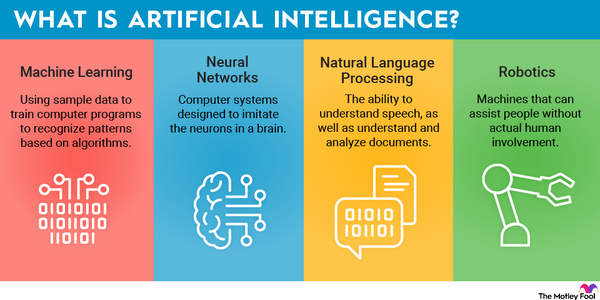Richard Whittle gets funding from the ESRC, Research England and was the recipient of a CAPE Fellowship.
Stuart Mills does not work for, seek advice from, own shares in or get funding from any business or organisation that would gain from this short article, and has actually divulged no appropriate associations beyond their scholastic visit.

Partners
University of Salford and University of Leeds provide financing as establishing partners of The Conversation UK.
View all partners
Before January 27 2025, it's reasonable to state that Chinese tech company DeepSeek was flying under the radar. And after that it came considerably into view.
Suddenly, everyone was speaking about it - not least the investors and executives at US tech firms like Nvidia, Microsoft and Google, which all saw their business values tumble thanks to the success of this AI startup research laboratory.
Founded by an effective Chinese hedge fund manager, the lab has actually taken a various approach to expert system. Among the significant differences is expense.

The advancement costs for Open AI's ChatGPT-4 were stated to be in excess of US$ 100 million (₤ 81 million). DeepSeek's R1 design - which is used to create material, resolve logic issues and create computer code - was apparently used much less, less powerful computer system chips than the similarity GPT-4, leading to costs claimed (however unverified) to be as low as US$ 6 million.
This has both financial and geopolitical results. China is subject to US sanctions on importing the most innovative computer chips. But the truth that a Chinese startup has actually been able to develop such an innovative design raises concerns about the efficiency of these sanctions, and whether Chinese innovators can work around them.
The timing of DeepSeek's new release on January 20, as Donald Trump was being sworn in as president, signalled a difficulty to US supremacy in AI. Trump reacted by explaining the moment as a "wake-up call".
From a monetary perspective, the most obvious result may be on consumers. Unlike rivals such as OpenAI, which recently began charging US$ 200 monthly for access to their premium models, DeepSeek's similar tools are currently complimentary. They are also "open source", allowing anyone to poke around in the code and reconfigure things as they want.
Low costs of development and effective usage of hardware seem to have actually paid for DeepSeek this cost benefit, and have actually already forced some Chinese rivals to lower their rates. Consumers ought to expect lower expenses from other AI services too.
Artificial financial investment
Longer term - which, in the AI industry, can still be remarkably soon - the success of DeepSeek could have a big effect on AI financial investment.
This is because up until now, almost all of the huge AI companies - OpenAI, Meta, Google - have actually been struggling to commercialise their designs and pay.
Previously, this was not necessarily an issue. Companies like Twitter and Uber went years without making revenues, prioritising a commanding market share (lots of users) rather.
And business like OpenAI have been doing the same. In exchange for continuous financial investment from hedge funds and other organisations, they promise to develop much more effective models.
These designs, the service pitch probably goes, will enormously increase efficiency and after that success for organizations, which will wind up delighted to pay for AI items. In the mean time, all the tech business require to do is collect more information, purchase more effective chips (and accc.rcec.sinica.edu.tw more of them), and establish their designs for longer.
But this costs a lot of money.
Nvidia's Blackwell chip - the world's most powerful AI chip to date - expenses around US$ 40,000 per unit, and AI business typically need 10s of thousands of them. But already, AI business have not truly had a hard time to attract the essential financial investment, even if the amounts are big.
DeepSeek might change all this.
By demonstrating that developments with existing (and possibly less innovative) hardware can accomplish similar efficiency, it has offered a caution that throwing money at AI is not guaranteed to settle.
For example, prior to January 20, it may have been presumed that the most advanced AI models need massive information centres and other infrastructure. This indicated the similarity Google, Microsoft and OpenAI would face restricted competitors since of the high barriers (the vast expenditure) to enter this market.
Money concerns
But if those barriers to entry are much lower than everybody thinks - as DeepSeek's success suggests - then many enormous AI investments unexpectedly look a lot riskier. Hence the abrupt effect on big tech share costs.
Shares in chipmaker Nvidia fell by around 17% and ASML, which develops the devices required to produce sophisticated chips, likewise saw its share rate fall. (While there has been a small bounceback in Nvidia's stock price, it appears to have settled below its previous highs, showing a new market reality.)

Nvidia and ASML are "pick-and-shovel" business that make the tools needed to develop a product, bbarlock.com instead of the product itself. (The term comes from the idea that in a goldrush, the only person ensured to earn money is the one selling the choices and shovels.)
The "shovels" they sell are chips and chip-making devices. The fall in their share prices originated from the sense that if DeepSeek's more affordable method works, the billions of dollars of future sales that financiers have priced into these companies might not materialise.
For the similarity Microsoft, Google and Meta (OpenAI is not openly traded), the cost of building advanced AI may now have actually fallen, suggesting these firms will have to invest less to remain competitive. That, for them, could be a good idea.
But there is now doubt regarding whether these business can successfully monetise their AI programmes.
US stocks comprise a historically big portion of international financial investment today, and technology companies comprise a historically big percentage of the value of the US stock exchange. Losses in this industry might force investors to sell other financial investments to cover their losses in tech, resulting in a whole-market downturn.
And it shouldn't have actually come as a surprise. In 2023, a leaked Google memo cautioned that the AI industry was exposed to outsider disruption. The memo argued that AI companies "had no moat" - no security - against rival designs. DeepSeek's success might be the proof that this holds true.









